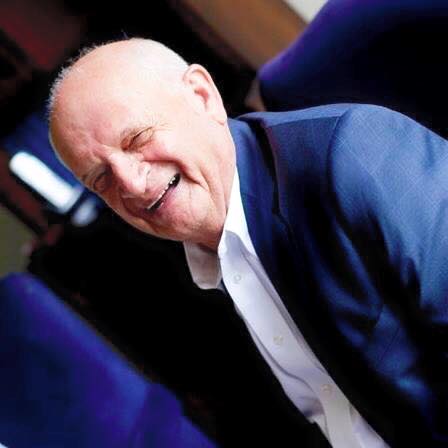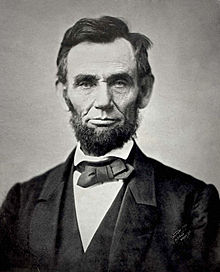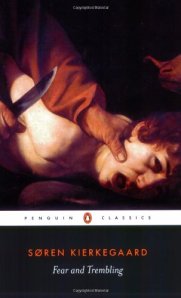Grandma and Grandpa’s 60th wedding anniversary was next weekend. There were people coming in to celebrate 60 years of love. A menu was created, the food was purchased and stored in the freezer. My aunt was asking for advice on a van, since she liked their van and wanted to know the pros and cons. There was wiring being done on their house by Grandpa. There were plans to go out and eat with people for the next two weeks. That’s simply how they rolled. Last Wednesday, they were preparing to go to Ash Wednesday service. Grandpa had to drive as Grandma’s been deteriorating from Parkinson’s. It’s a horrible disease, and those who have seen it know how debilitating it can be. Her mind is still good, but her mobility is hampered more and more.
Grandpa went upstairs to get changed. It would be quick, they would make it to church on time, and he had a nice outfit picked. After twenty minutes upstairs, Grandma called for him and received no response. She, very likely, struggled up the stairs. Grandpa was unresponsive. She proceeded to struggle back down the stairs, as her cell phone was downstairs, where she called my aunt.
We received text messages and phone calls halfway through our own Ash Wednesday service. By the time we were out and I saw the text that Grandpa had collapsed, then called my aunt, she stunned us with the news Grandpa was dead. She said passed, but as a writer words have a certain levity to them. Passed doesn’t do justice what happens at the end of life. Dead does.
I was to go to Utah the next morning for a writer’s convention. The plan was after church to do laundry, hang out with mom and dad, and be to bed by nine, since I had to be up around four. I nearly did not go. I definitely did not bring the clothes I was thinking I would. Due to the grace of Mom, I ended up with clean clothes at all.
Grandpa wasn’t supposed to die. His shoulder gave him problems, he was slowing down, but he still was filled with vigor at 83. There were countless plans surrounding him and his life, and no one expected the phone call. There were no health issues.
Suddenly my brothers were flying or driving in with their families. One of them expected to drive in next week for the celebration of marriage. Neither of them expected to come back home for the mourning of a death.
Life ends abruptly. Not always. My other Grandpa suffered for years from numerous diseases, including Alzheimer’s and Parkinson’s, to the point he was basically incoherent for the final stretch. There were no plans made into the future, and every day we showed up to the nursing home and he was still breathing was a bonus. But how many people in our novels die that death?
When I was sitting in Grandma and Grandpa’s living room with Grandma going through all the reasons he couldn’t be dead, when plans were made and cancelled because of death, when I heard of the project which were happening and would not be neglected, I realized something about death, something I never realized because I’ve never before been in a house with a dead body that so immensely affected me.
Death leaves threads which are unfinished.
How often do characters going into battle have no tomorrow? A Victorian novel where two characters duel in the morning, but they have no plans for lunch later on. A teen about to be on the receiving end of a slasher flick doesn’t do their homework, unless we want them to be doing their homework when the horror starts. Even those who walk onto the battlefield. Our soldiers have families at home. They plan on seeing those families. Leave is planned out in order to visit them, sometimes during important events. Maybe it’s as simple as a planned poker game that evening, even though they are aware they are going into an encounter shortly.
People don’t plan to die. Make plans as if they will survive.
Bran, in A Game of Thrones, has an entire chapter on how he has planned out his life. Then he is pushed out a window and falls to become a cripple. His plans are interrupted.
Ned plans on exposing the incest of Jaime and Cersei, until they catch him. Then he simply plans on making it home to his family, hiding in Winterfell, and taking care of his kids. Both of these plans are decapitated when Ned loses his head in a rash decision by Joffrey. Not only that, but it was for naught. By Clash of Kings everyone knows of the incest anyway.
In H.P. Lovecraft, often his characters do not plan out anything beyond the terror inducing events of the present. The men go into a cave with no thought of tomorrow, a guaranty to their own mortality. While I still love his writing, why wouldn’t the man researching a hidden horror in a crypt make plans to return to the surface, writing fanciful notes from the psych-ward he would so justly deserve?
When a healthy character is about to die, especially in an epic where tomorrow matters, have them make plans. It makes it more real. It makes us understand. We recall that death strikes at any time, and the reaper does not care what we wanted to do tomorrow. It takes us all the same.
The rest of the week will consist of information from the writer’s conference, which was a blast. Today, however, having been the funeral, this is what slapped me in the face.

In memory of Grandpa, who gave countless virtues and blessings to his daughters, grandchildren, and even great grandchildren. Who taught us faith, an even temper, and a determined approach to this world. You were taken by a thief in the night, but you’ve left behind so many great reminders as to the amazing man you were. I miss and love you, Grandpa. Until we meet again.















